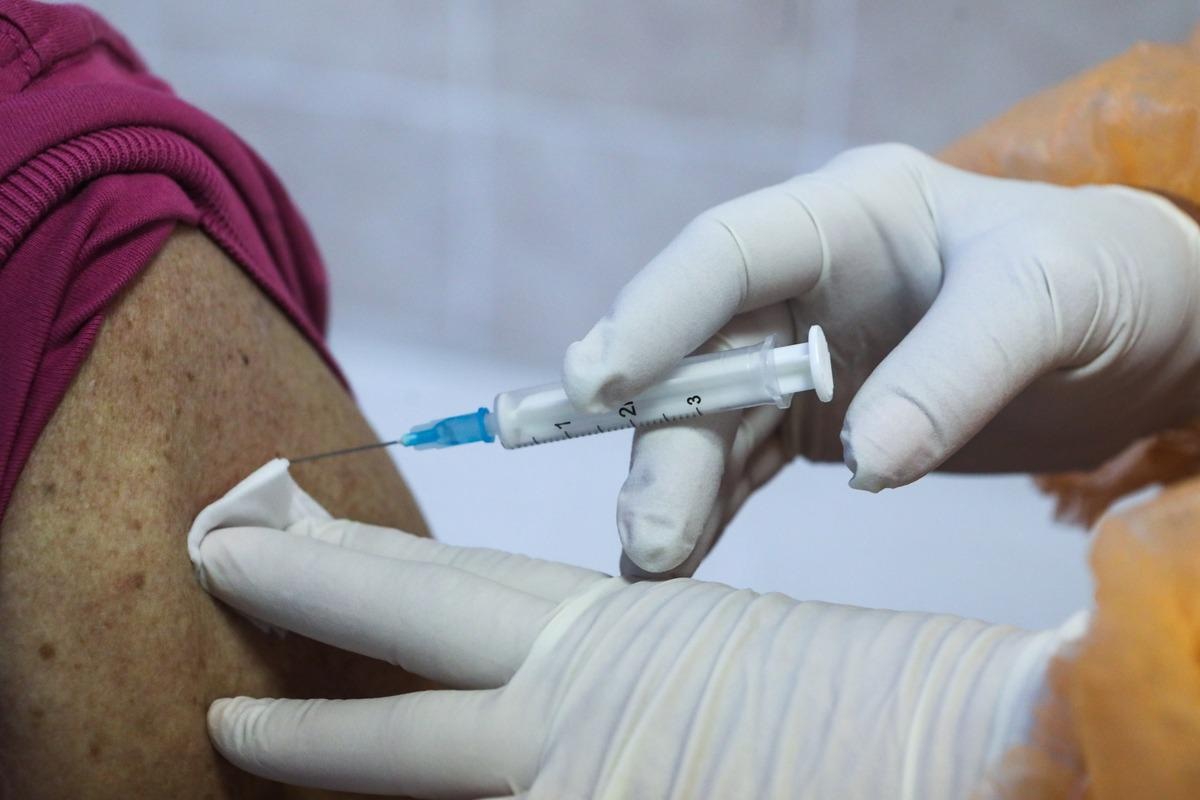In a recent preprint study posted to the medRxiv* preprint server, researchers from the United States (US) explored the extent of antigen-specific secretory immunoglobulin A (SIgA) antibody induction in response to messenger ribonucleic acid (mRNA) vaccines against coronavirus disease 2019 (COVID-19).
 Study: Efficient mucosal antibody response to SARS-CoV-2 vaccination is induced in previously infected individuals. Image Credit: Pimen/Shutterstock
Study: Efficient mucosal antibody response to SARS-CoV-2 vaccination is induced in previously infected individuals. Image Credit: Pimen/Shutterstock
Immunity and SARS-CoV-2 vaccines
The mucosal antigen-specific SIgA antibody-mediated immunity is vital against respiratory infections. In severe acute respiratory syndrome-associated coronavirus 2 (SARS-CoV-2) infection, immunoglobulin A (IgA) antibodies are released rapidly and can be detected in the saliva and serum samples of COVID-19 patients. However, the extent to which mRNA vaccines induce IgA in humans is not clear from the previous studies.
The study
In the present study, paired samples of saliva and serum of subjects with and without (seropositive and seronegative) COVID-19 at various time points pre and post the administration of SARS-CoV-2 mRNA vaccines were analyzed to determine the induction of antigen-specific SIgA antibodies after COVID-19 vaccination.
The data was collected from a longitudinal observational PARIS (Protection Associated with Rapid Immunity to SARS-CoV-2) study. A total of 30 participants, who signed a written consent form, were observed for 200-372 days. The participants received Pfizer- BioNTech (BNT162b2) or Moderna (mRNA-1273) COVID-19 vaccines. The samples of saliva and serum were collected in a cup by venipuncture and stored at -80°C. Using a mammalian cell protein expression system recombinant, SARS-CoV-2 proteins like SARS-CoV-2 spike (S), nucleoprotein (NP) gene sequences (GenBank: MN908947), and receptor-binding domain (RBD) were produced and stored at -80°C until used.
The data were grouped based on the time of vaccination: prior to vaccination, 1-100 days after vaccination, and after 100 days of vaccination. The enzyme-linked immunosorbent assay (ELISA) technique was used to quantify anti-SARS-CoV-2 spike immunoglobulin G (IgG), SIgA, and nucleoprotein (NP) SIgA titers in saliva, and anti-SARS-CoV-2 spike binding IgG titers in serum samples. The relation between various antibody titers was determined by performing correlation analyses on the samples.
Results
Among the 30 study participants, 18 participants had prior exposure to COVID-19 before vaccination and the remaining 12 subjects were seronegative for COVID-19. In the seropositive group, a marked increase in anti-SARS-CoV-2 spike serum and mucosal antibody titers were observed compared to a low hike in the seronegative group. There was a positive correlation between serum and saliva anti-spike monomeric IgG titers confirming that serum IgG antibodies are leaked into the saliva. On the contrary, anti-spike monomeric SIgA titers in saliva weakly correlated with serum IgG titers.
It was found that the anti-NP SIgA-related immunity in seropositive participants weans over time as the initial peak of mucosal anti-NP SIgA in seropositive patients found during pre-vaccination and between 1-100 days after vaccination was not found in samples collected 100 days after vaccination. There was no increase in the mucosal anti-NP IgA titers in seropositive and seronegative subjects; only serum and mucosal anti-spike antibody titers were markedly elevated after vaccination in these participants.
The peak in mucosal IgA and IgG titers were markedly elevated in seropositive subjects compated to the seronegative as 15 subjects in the seropositive group had a peak in mucosal IgA compared to six in the seronegative group. The vaccine-induced mucosal SIgA antibodies in a few of the seronegative individuals were SARS-2 spike-specific antibodies. Additionally, there is no correlation between immunity from seasonal beta coronaviruses (HCoV) and SIgA induction post-vaccinated seronegative subjects.
Conclusions
The study results suggest that the mRNA vaccine-induced mucosal SIgA responses depend on prior immunity resulting from COVID-19. Those without prior exposure to COVID-19 or cross-reacting anti-HCoV had only a mild mRNA vaccine-induced immune response whereas those who were seropositive for COVID-19 experienced a boost in pre-existing mucosal immunity with high levels of SIgA responses. In vaccinated COVID-19 survivors, the induction of anti-spike SIgA high levels was quick due to pre-existing mucosal immunity.
The results show that the induction of anti-SARSCoV-2 spike saliva SIgA antibodies after vaccination was independent of the gender or type of vaccine received. Also, the incidence of breakthrough infection has only been detected in participants without SARS-CoV-2 infection prior to vaccination so far. To avoid bias, the total concentration of IgA within each saliva sample was measured based on the total IgA content within each saliva sample, and SIgA titers specific for SARS-CoV-2 were normalized.
The use of innovative vaccination strategies like intranasal vaccines including NDV-HXP-S can induce SIgA antibodies for the management of the SARS-CoV-2 pandemic. More studies are required to identify the mechanism of mRNA vaccine-induced mucosal antibody levels and SIgA-associated immunity, and to compare monomeric IgA and SIgA antiviral function.
*Important notice
medRxiv publishes preliminary scientific reports that are not peer-reviewed and, therefore, should not be regarded as conclusive, guide clinical practice/health-related behavior, or treated as established information.
- Kaori Sano, et al. (2021). Efficient mucosal antibody response to SARS-CoV-2 vaccination is induced in previously infected individuals. medRxiv. doi: https://doi.org/10.1101/2021.12.06.21267352 https://www.medrxiv.org/content/10.1101/2021.12.06.21267352v1
Posted in: Medical Science News | Medical Research News | Disease/Infection News
Tags: Antibodies, Antibody, Antigen, Assay, Cell, Coronavirus, Coronavirus Disease COVID-19, Enzyme, Gene, Immune Response, immunity, Immunoglobulin, Pandemic, Protein, Protein Expression, Receptor, Respiratory, Ribonucleic Acid, SARS, SARS-CoV-2, Severe Acute Respiratory, Severe Acute Respiratory Syndrome, Syndrome, Vaccine

Written by
Susha Cheriyedath
Susha has a Bachelor of Science (B.Sc.) degree in Chemistry and Master of Science (M.Sc) degree in Biochemistry from the University of Calicut, India. She always had a keen interest in medical and health science. As part of her masters degree, she specialized in Biochemistry, with an emphasis on Microbiology, Physiology, Biotechnology, and Nutrition. In her spare time, she loves to cook up a storm in the kitchen with her super-messy baking experiments.
Source: Read Full Article
